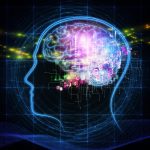 Sharing information is a crucial way in which humans learn and become smarter, but it’s not so easy for machines to do likewise. Research from USC suggests that it can be done, however. The study highlights how AI agents continuously learn after each new task.
Sharing information is a crucial way in which humans learn and become smarter, but it’s not so easy for machines to do likewise. Research from USC suggests that it can be done, however. The study highlights how AI agents continuously learn after each new task.
The researchers developed a tool, called SKILL (for Shared Knowledge Lifelong Learning), through which AIs learned over 100 separate tasks. The AIs then shared this knowledge through a decentralized network, after which they managed to master each of the tasks.
A faster approach
They explain that most learning today involves a single AI agent tackling tasks sequentially, which is inherently slow. According to the researchers, their SKILL tool incorporates a collection of algorithms that expedite the process significantly, as agents undergo parallel learning.
The study demonstrated that by assigning 102 agents to individual tasks and subsequently sharing their acquired knowledge, the time required for completion decreased by a factor of 101.5 after accounting for necessary communications and knowledge consolidation among the agents.
It’s an approach that could affect various disciplines. In the medical domain, distinct AI systems could be tailored to specialize in various aspects, such as learning about specific illnesses, treatment methods, patient care techniques, and the latest research.
Upon amalgamating their knowledge, these AI systems could collectively function as comprehensive medical assistants, offering physicians the most up-to-date and accurate information spanning all facets of medicine.
Fresh thinking
Similarly, envision a scenario where each smartphone user acts as a local tour guide while exploring a new city. By capturing photos and providing insights about significant landmarks, stores, products, and local cuisine, these users contribute to a vast repository of data.
Once this data is disseminated across a network, every smartphone user would effectively carry an advanced digital tour guide in their pocket, allowing them to access a wealth of information and guidance about the city they are visiting.
“In essence,” the researchers explain, “any profession requiring vast, diverse knowledge or dealing with complex systems could significantly benefit from this SKILL technology.”